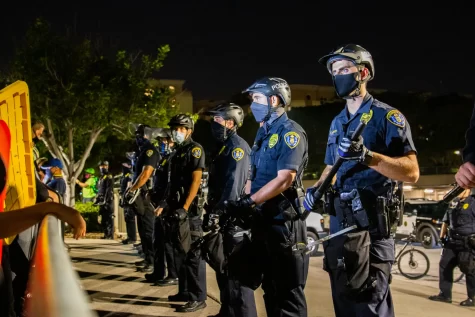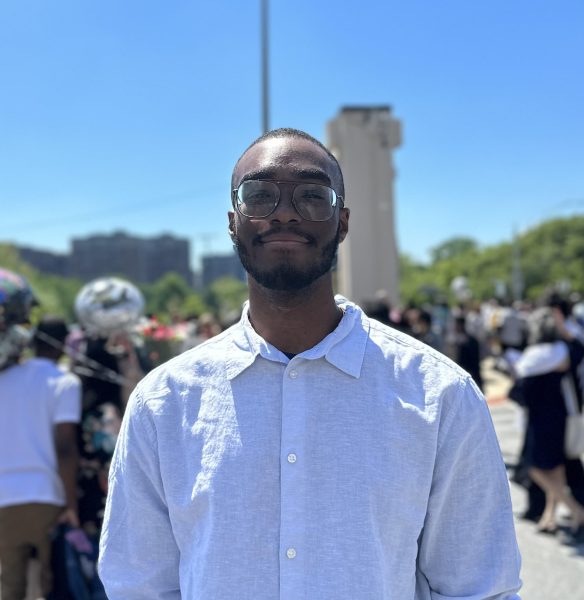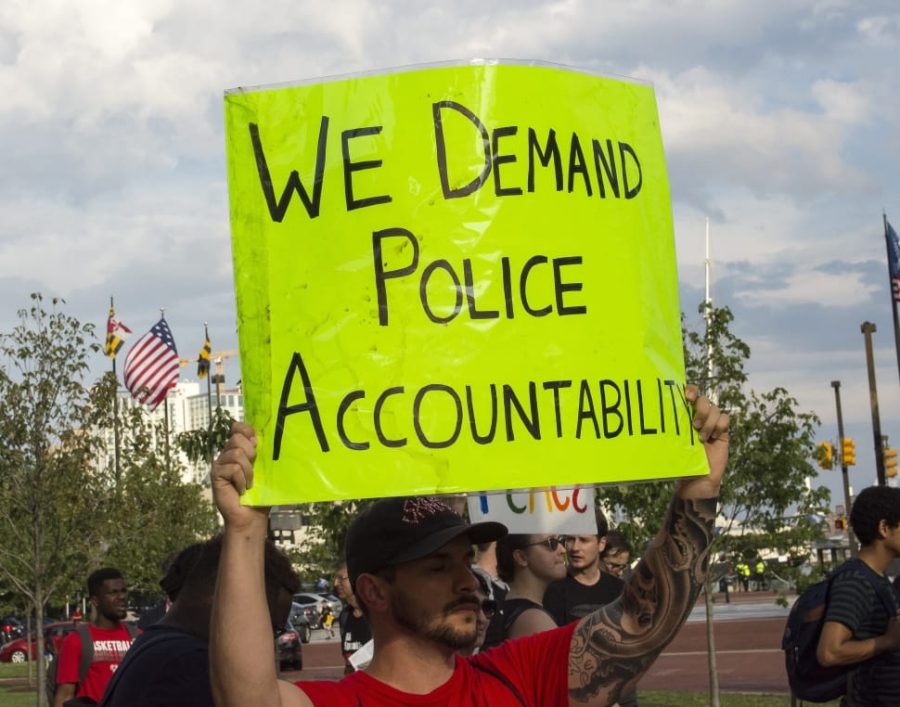Police Accountability: A Few Bad Apples or Endemic Violence?
Mercy College hosts a police accountability event that gives students a chance to use their voices to spark change.
Prof. Carol Bennett-Speight has seen it all before and argues that the debate surrounding police accountability is nothing new.
“What makes it different now is that we have massive media coverage of these incidents…the black and brown community has been aware of the epidemic for years. The masses are finally seeing what Blacks have talked about for centuries.”
The nation’s question remains: Stand by the Blue. Or stand against it.
Mercy College’s Criminal Justice department hosted an informative event on Feb. 7 to hold a spotlight on the rise in police violence across America and opened the floor to students to freely discuss their beliefs regarding the proper way to hold law enforcement accountable.
The hybrid on-campus event titled Police Accountability: A Few Bad Apples or Endemic Violence sought to provide a safe space for students to openly discuss their perspectives and aimed to potentially restore the supposed broken bridge between the American public and law enforcement.
In the aftermath of Tyre Nichols’ death and the public outrage that followed, Mercy’s Criminal Justice department found it necessary for them to spark an open conversation with students surrounding police accountability.
Prof. Frank Chen of Mercy’s Criminal Justice department praised this latest event. “It benefited the students, faculty, and staff. I’m glad we are taking the first step to address it.”
At the top of the event, the hosts began a one-minute moment of silence to put this difficult conversation into perspective and to clear their minds before the discussion.
But before the reflection period, Bennett-Speight said that she wanted the hosts and attendees to “keep in mind Tyre Nichols, George Floyd, Eric Garner, Brionna Taylor, and others who have experienced this force of police brutality.”
Later on, Prof. Charles Lieberman, program director of Mercy’s criminal justice department, talked about his past law enforcement career. Lieberman discussed the policing “subculture” of young officers-in-training having to deal with mistreatment by their superiors is not a secret as typically shown in films and television.
“That continues when they become rookie officers where there is this culture of humiliation. And that then gets extended onto the interaction with those officers to the public. Is there a way to change that? Is there something we can do differently about the way we train and socialize police to diminish that prevalence of disparate treatment towards members of the public?”
Chen commented on the number of attendees, which was roughly thirty students. He said it was a large group, “especially for a difficult and controversial topic to discuss.”
Chen added how difficult it was for students to join these types of controversial debates. Students, he argues are not used to this level of engagement and public communication. “It takes time and is a part of student education, this is a form of training and this is a type of education that matters a lot beyond a textbook.”
In a recent poll conducted on The Impact‘s official Instagram account, 20 Mercy students were asked about their perspective on law enforcement.
About 40 percent of students claimed they had a positive opinion of police officers. The same percentage of students stated they had a negative opinion and 20 percent said they were neutral on the subject of police accountability.
Lucianna Maria, a student at Mercy College who participated in the Instagram poll, stated that she is “super grateful to all law enforcement. They do the tough work to make us safe.”
These are polarizing times. And amid this national discourse, many find it impossible to see meet in the middle. To see both sides in the argument. This complex debate has, for some, become a black-and-white mortality issue with no grey areas.
There are always two sides to every story. And often times, many who argue for police accountability forget to hear from law enforcement themselves.
In the wake of Nichols’ death on Jan 7, the Ithaca Police Benevolent Association (PBA) released a statement condemning the act of violence perpetrated by fellow police officers and claimed their group will continue to work towards fostering a positive relationship with the public.
“We know we can always do better. We continue to demand professionalism, respect and humanity from our members and are always seeking to improve. The murder of Tyre Nichols however is a grim reminder that despite our efforts locally, we as a profession have much more work to do.”
Although challenging, Chen believes the first step in strengthening the relationship between law enforcement and citizens is communication
“Just even showing up and being involved and listening is the first step to making changes for the better. As with all sensitive and difficult conversations, it takes time and patience. It’s certainly an investment…good things come to those who are patient. And I strongly believe there will be improvements in the future.”
One Mercy student who asked not to be identified who attended said we need to put aside the notion of a few bad apples, or the good and bad cop, and point to the “corrupted” system.
“I don’t like using those terms because I think it’s the system. We need to take a step back and look at what they’re brought up upon. I think that’s something we need to really focus on. And that’s somewhere we need to begin that change with.”
Chen celebrates the fact that young Americans are finding the courage within themselves to speak up on such a difficult and uncomfortable topic and believes that this will lead to changes that will only promote the betterment of the country.
“People are not alone when they feel hurt, traumatized, or even scared. The students do have the power to make changes for the betterment of society. When you’re scared and when you do something even when you are scared, that is called courage.”

Matthew Marrow, an attendee at the event, reflected on his own negative experiences with law enforcement where he’s had a gun pointed to his head by an officer.
“I filed complaints and complaints and the first thing they said was ‘you fit the description’. That’s the easy way out. But if you don’t follow up on what they did and hold them accountable, they will continue to do it. The good cops become bad cops because they don’t say or do anything.”
Marrow continued to say “for people to hear you, you have to talk loud. And when you whisper, people don’t hear you and don’t respect you. For young people, you have to have a movement that is powerful for people to understand what you’re talking about. If you don’t say anything, no movement will be made.”

Maleek Munroe is a senior at Mercy College, majoring in communications. He graduated Nyack High School, where he found his love and passion for both...








